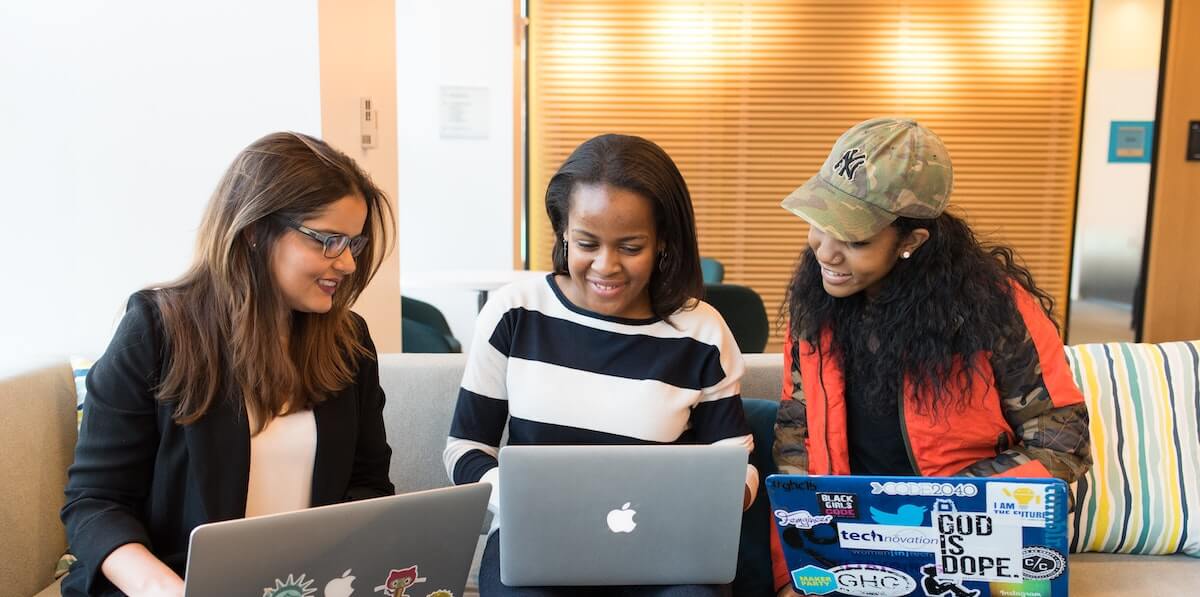Inspiring Diversity in Tech Through Automation Education with UiPath & EY Foundation

Diversity is a major driver of innovation, and the only way to ensure that the future of tech is inclusive is to offer everyone regardless of their background the opportunity to gain the skills that will help them—and the wider society—thrive in the future of work.
Increasingly, that means having automation skills. Though over 30% of UK companies say they lack these capabilities. As business is increasingly global, it is vital that inclusivity is valued as people upskill in this area.
Automation offers a huge boost to businesses, allowing them to save time, decrease costs, and speed up work. Yet the benefits won’t end there. If every organization embarks on an automation program, and its workers have the skills from a diverse background to do so, automation will have a wider economic impact and societal benefits.
Empowering workers through automating repetitive tasks can also improve overall productivity, create positive work environments, and provide opportunities for organizations to achieve wider corporate social responsibility (CSR) goals, such as environmental and further inclusion initiatives.
Promisingly, the precedent has been set with major global tech firms and universities alike investing in technology skills and training for students. Some universities have the goal of a robot for every student and are already putting programs in place to turn those goals into realities. By striving for a world where there is a robot for every student, will we realize the goal of ‘a robot for every person™.’
If we can achieve this, we will truly democratize robotic process automation (RPA). It will be second nature to people as they enter the world of work. Students will have developed, deployed, and shared their own automations while studying; entering the workplace with the skills they need to drive its adoption.
We’re now going one step further with a major focus on hard-to-reach groups of students. This will help reduce inequality, foster inclusivity, and boost future innovation. We have partnered with the EY Foundation in the United Kingdom (UK) to provide young people from low-income backgrounds with the experience and knowledge to better access a career in the technology sector, with a focus on how automation unlocks creativity.
The EY Foundation Tech Futures program aims to equip young people identified as needing additional financial support at school with business experience and mentorship from tech employers. The 10-month program gives students a variety of transferable skills to help them kick off a career in tech or the domain of their choosing.
We are thrilled to have joined the EY Foundation's Tech Futures program, enabling young people from challenging backgrounds to acquire the skills needed for a flourishing career in an exciting, rapidly growing market.
The UiPath vision and mission is to unlock human potential by empowering talent, which aligns with EY Foundation's goal to create a diverse workforce well equipped to navigate the future of work successfully.
This is a hugely challenging time for young people looking for their first job. The tech sector though is growing fast, and this new program offers a great chance for young people from a diverse background to find out more about the opportunities available and introduces employers to the talent of the future.
Lynne Peabody, Acting CEO, EY Foundation
Getting started
The intake of 20 students from across the United Kingdom (UK) got off to a flying start earlier this month with a paid week of skills training, facilitated by key UiPath executives. Students learned to develop their employability, leadership, and self-reflection skills with advice from 18 members of the UiPath team including Gavin Mee, UiPath Managing Director for UK and Ireland, and Andreea Baciu, UiPath Chief Culture Officer.
Sessions touched upon employers’ insights, people operations, professional services, social media, and sales, among other topics. Students heard from UiPath experts about their own career journeys.
In following discussions, they were shown that there is not a prescribed way of getting into tech, and often, the more diverse your experience, the better.
The week ended with a Dragons’ Den-style challenge designed to enhance the students’ understanding of planning processes and teamwork. UiPath asked students to develop an automated solution that could help to address the negative impacts that lockdown has had on the health and wellbeing of young people.
Starting from the roots, the students built their holistic idea – creating a company name, mission statements, marketing plans, and finally delivering a sales pitch to a panel of senior tech professionals from UiPath and other partners.
Renzo Taal, Managing Director of EMEA at UiPath, said, “We were very impressed with what the students delivered during the Dragons’ Den exercise. Their ability to get things done and their confidence in delivering the pitch and answering our questions was outstanding. It is great to see the future of the tech sector already challenging ideas and innovating at such an early stage.”
This exercise only cemented our confidence in the importance of attracting young people of all backgrounds to the tech sector. We were struck by the talent, energy, and ideas the students brought to the table. The innovation that young people can contribute, even in such a short amount of time, will be highly influential in bringing about future change in the tech sector and society as a whole.
Denise Oakley, Senior Vice President (VP) of EMEA Marketing, UiPath
Living the UiPath experience with paid internships
The program continued with a week’s paid internship at UiPath, providing students with real-life experience working in a tech firm. They met people from across the organization, learning about what UiPath employees do and working on real business challenges, including the opportunity to build their first ever software robots.
Ali, winner of the Tech Futures Peer Award, commented, “I still cannot believe that we've built my first robot together! I loved it and I look forward to building and doing more with you in the future.”
Over the next 10 months, UiPath mentors will continue to work with the students to identify their next steps, whether that is furthering their academic education, an apprenticeship, or a job.
Through continued connections with the students, the EY Foundation, UiPath, and other partners hope to build a more diverse pipeline of talent to attract to the tech sector. Ultimately, initiatives like these benefit the whole industry, because diversity and innovation go hand in hand.
Want to know more about how automation is making a positive impact? Join us for our Automation for Good webinar series.
And if you’re inspired to have your own UiPath internship experience, explore our current internship opportunities.

Vice President (VP) of Partner Sales, EMEA, UiPath
Get articles from automation experts in your inbox
SubscribeGet articles from automation experts in your inbox
Sign up today and we'll email you the newest articles every week.
Thank you for subscribing!
Thank you for subscribing! Each week, we'll send the best automation blog posts straight to your inbox.



